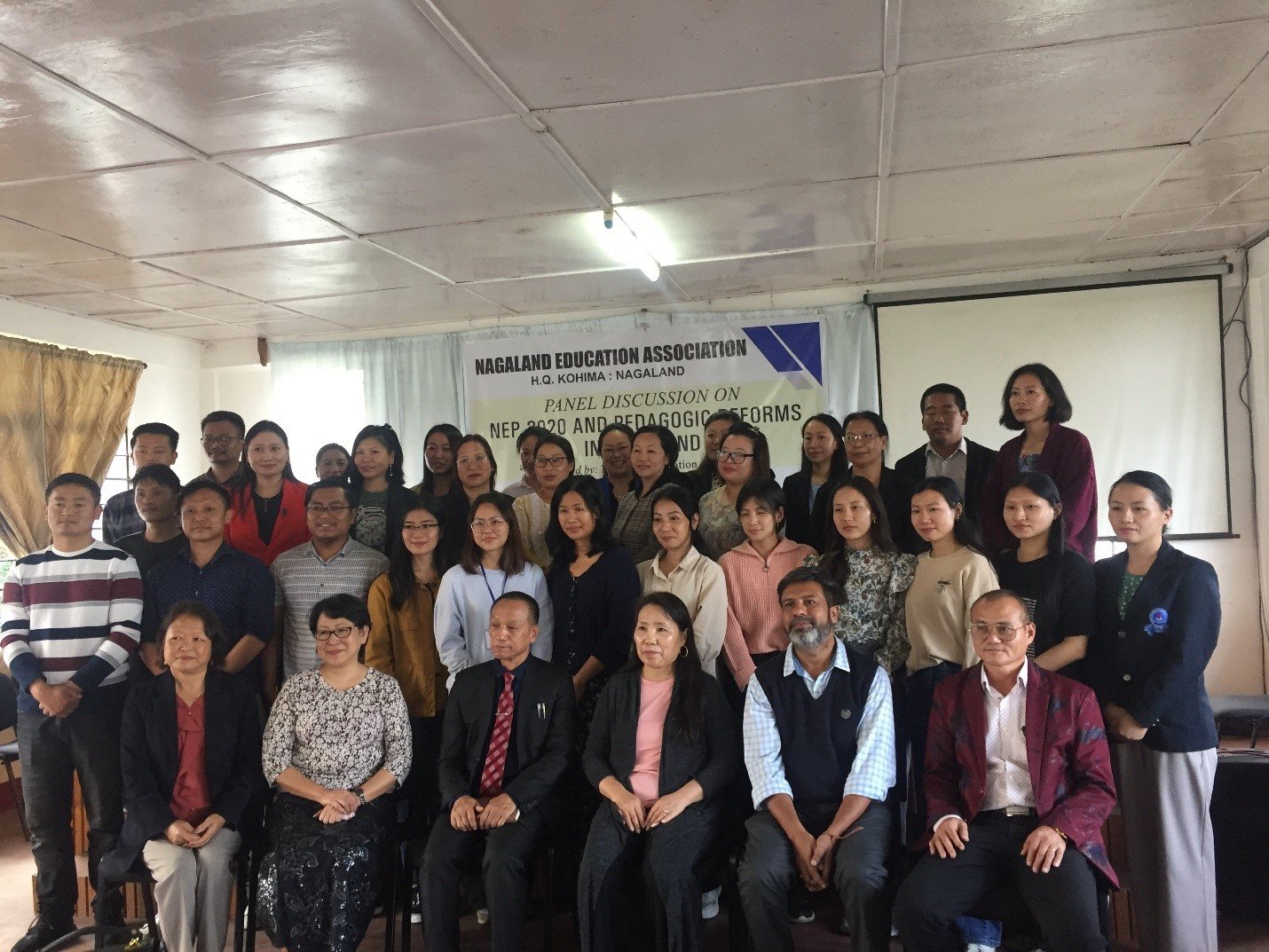The Nagaland Education Association organised a panel discussion on NEP 2020 and pedagogic reforms in Nagaland at the State College of Teachers Education (SCTE), Kohima on 13 October.
At the discussion, Dr. Zavise Rume, President Nagaland Education Association stated that the New Education Policy (NEP) 2020 is designed with a vision that education is learned and introduced to the people in an integrated manner so that children will learn more than what is in the book. He also highlighted the recommendations and proposals of NEP 2020 and said, “Too many good things has been recommended in NEP and it is our role now to implement and to ensure that curriculum is flexible and to make education very flexible and joyful curriculum.”
Pointing out the focus and objectives of NEP 2020 which emphasised on reorienting and revamping the education structure, Rume said, “We are losing our creative and critical ability of thinking to technology,” adding that children do not have time to think, but have ample time to spent on computers and mobiles and the Internet. Therefore, Rume called upon the educators to promote creativity by implementing the NEP 2020 policies and introduce integrated system of education ensuring that curriculum is flexible, joyful, experiential, fun, skilled based, analyse, discovery and enquiry based and interactive. He also urged the educators to minimise the dependence on textbook and to eliminate the concept of “if there is textbook there is education, if there is no textbook there is no education” as it is one of the biggest attributes of paralysing critical thinking
Emphasising on the NEP 2020 pedagogy reforms to renew the approaches and methods, Rume further pointed the need to improve the foundation and basis and stressed on the importance of indigenous education. He stressed that education should integrate pedagogy of art, science, sports with the inclusion of story telling and remarked that story telling was one of the most interesting method of learning fifty years ago. “We have studied hundreds and thousands of books but those stories we have learned 50 years ago we are still retaining,” said Rume, adding “we ought to have our own foundation and our own base. We cannot just borrow from Korea or Japan or India or America to make our society a knowledgeable society”
Rume also mentioned that the NEP aims to transform India into a knowledge society. He maintained that India with the implementation of New Education Policy (NEP) 2020 which emphasises on reducing curriculum to create space for creative and critical thinking is getting ready to supply professional skilled manpower to the world.
Download Nagaland Tribune app on Google Play

Panelist Dr. Bendangyapangla Associate Professor, State College of Teacher Education Kohima stated that outdated pedagogy is detrimental to the progress of the students and emphasised on making teaching learning process student centred, enjoyable and more student friendly. She said that the NEP 2020 National policy has come at the right time to fulfil the demands of the alpha generation. She urged the educators to rise and align with the changing climate of the present digitalised generation ensuring supportive, sensitive and nurturing learning environment. She also talked about preparing the students to become fluent in inquiry methods by engaging them to research works and allowing them to participate more in discussions
Panelist Dr. Prasanjit Pal Assistant Professor, Department of Teacher Education Nagaland University Campus, Kohima spoke on the importance of traditional multidisciplinary, interdisciplinary knowledge and education system, indivisible pedagogy of curriculum and assessment, the integration of arts and humanities and the incorporation of local language, local culture, history, economy, society games, skill enhancement courses and other valued added education.
Earlier, the welcome note was delivered by Dr. Visiezolie Yashü, General Secretary of Nagaland Education Association and the programme was chaired by Dr. Elizabeth, Principal, State College of Teacher Education Kohima while the concluding remark was delivered by Dr. Neizekhonuo Liezietsu Assistant Professor, State College of Teacher Education, Kohima.

